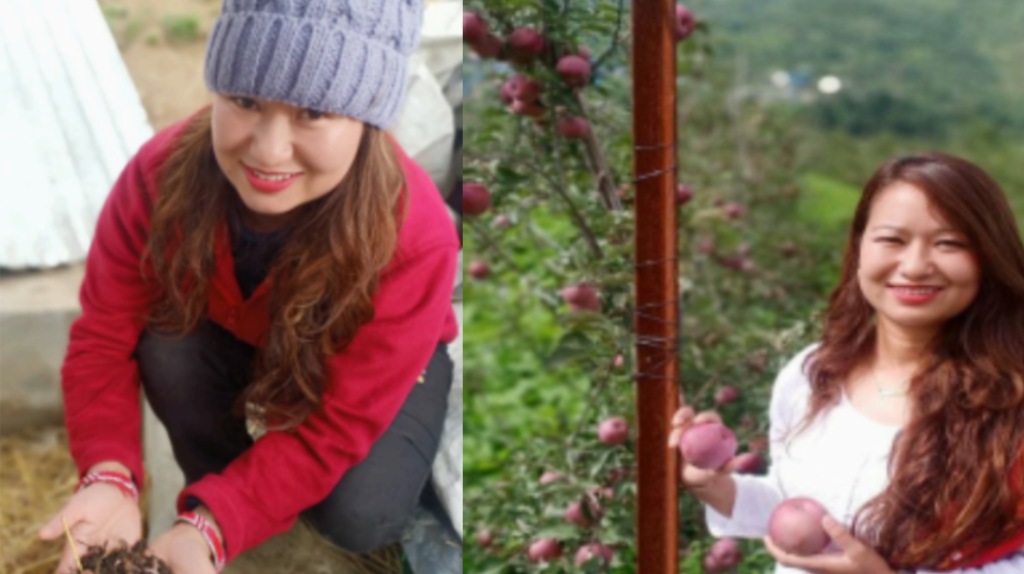An Innovative Woman from Jumla
My name is Reshma Shrestha, I have my university degree in Rural Development and graduation in Hotel Management. Beside my working with I®NGOs, I have been involved with Organic agriculture and Jumla Agro farm since last three years in Chandannath municipality Jumla. The high tech FUZI apple orchard is very new of it ’s kind in Jumla. As the district is declared organic by the local government, it became so challenging for us to do the commercial farming. Farmers in Jumla originally used manure from cows, sheep and buffaloes to fertilise crops. With limited number of livestock, we had more difficulty to manage farm in Jumla. The FUZI (Italian variety) is being produced since last 2 years and sold to Kathmandu and local market. I believe in hard work commitment can bring result at my own place rather than going abroad for labor. As a Rural Service Provider (RSP), I got an opportunity to received training and capacity building support from NMA®Helvetas Nepal which motivated me for the innovation on coping with lacking inputs to the present organic initiations. Capacity building training to help revive the diversity of crops produced and consumed locally. I developed a micro project to produced organic manure through vermin culture and promote fruit orchard.
I had piloted vermin culture in Jumla during the July 2019. This was so challenging as the earthworm brought from plain district can stay in the high Himalaya during the winter when it is minus 13 degree of temperature. In fact, I have crossed the winter now and the worming is still in progress, and organic manure is being developed. It has happened with my little change in shedding and keeping the cannel warm. In this regard, I saw the NMA project as a means to promote this idea which has linked vermiculture more solidly to better nutrition (both soil and human being). During the training there were more sensitization on the harmful effects of chemical fertilizer and pesticide where gave a short practical orientation about the benefit of vermin compost. Now I realized that it works as well as chemical fertilizer and observed that the compost makes the soil moisture, so it needs less water, and the fruit grow more with better taste. During the training, I have also learned to make bio discomposure formula that is used for soil and fertilizer. Both the decomposer and vermin compost has been successfully produced and used in the orchard. It has also been a learning center for other to replicate in other areas of Karnali region. It ’s been so helpful for the commercial production of organic commodities. Now I am producing more then 100 liters of decomposure and planning to expand vermin compost pit. I see a lot of opportunity for income and production here in Jumla. Foreign country is no more interest for me to livelihood promotion. Though there are still challenges: the temperature in Jumla is low that ideal temperature for vermicompost (during winter season), is 15 – 35 degree centigrade. I think this micro project influences community nutrition by increasing the supply of fruits and other multiple crops understanding their nutrition and economic value. In this regard, my role is quite important. Off course additional training in agriculture and more technical backstopping would be very useful to me. The face to face training organised by project were the best part; which enabled us to share ideas and lessons learned and improve project quality. I am quite sure that I will expansion the vermi – pits and utilised waste decomposer to the whole farm.
